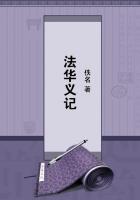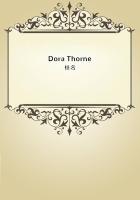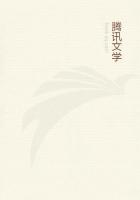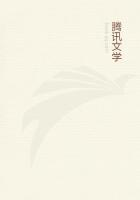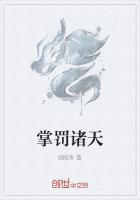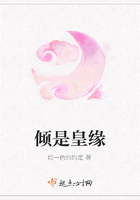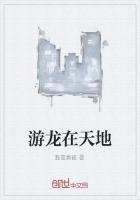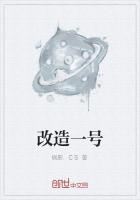As to stupidity and nonsense, if he objected to them, it would be better to pay no attention to them, instead of watching out for them all the time. Beside all this, is there not more reason than we imagine for every one of us to be indulgent towards the stupidity of other people?
"That poor stupidity of which we hear so much," exclaimed George Sand.
"I do not dislike it, as I look on it with maternal eyes."The human race is absurd, undoubtedly, but we must own that we contribute ourselves to this absurdity.
There is something morbid in Flaubert's case, and with equal clearness of vision George Sand points out to him the cause of it and the remedy.
The morbidness is caused in the first place by his loneliness, and by the fact that he has severed all bonds which united him to the rest of the universe. Woe be to those who are alone! The remedy is the next consideration. Is there not, somewhere in the world, a woman whom he could love and who would make him suffer? Is there not a child somewhere whose father he could imagine himself to be, and to whom he could devote himself? Such is the law of life.
Existence is intolerable to us as long as we only ask for our own personal satisfaction, but it becomes dear to us from the day when we make a present of it to another human being.
There was the same antagonism in their literary opinions.
Flaubert was an artist, the theorist of the doctrine of art for art, such as Theophile Gautier, the Goncourt brothers and the Parnassians comprehended it, at about the same epoch. It is singularly interesting to hear him formulate each article of this doctrine, and to hear George Sand's fervent protestations in reply.
Flaubert considers that an author should not put himself into his work, that he should not write his books with his heart, and George Sand answers:
"I do not understand at all, then. Oh no, it is all incomprehensible to me."With what was an author to write his books, if not with his own sentiments and emotions? Was he to write them with the hearts of other people? Flaubert maintained that an author should only write for about twenty persons, unless he simply wrote for himself, "like a _bourgeois_ turning his serviette-rings round in his attic."George Sand was of opinion that an author should write "for all those who can profit by good reading." Flaubert confesses that if attention be paid to the old distinction between matter and form, he should give the greater importance to form, in which he had a religious belief.
He considered that in the correctness of the putting together, in the rarity of the elements, the polish of the surface and the perfect harmony of the whole there was an intrinsic virtue, a kind of divine force. In conclusion, he adds:
"I endeavour to think well always, _in order to_ write well, but I do not conceal the fact that my object is to write well."This, then, was the secret of that working up of the style, until it became a mania with him and developed into a torture.
We all know of the days of anguish which Flaubert spent in searching for a word that escaped him, and the weeks that he devoted to rounding off one of his periods. He would never write these down until he had said them to himself, or, as he put it himself, until "they had gone through his jaw." He would not allow two complements in the same phrase, and we are told that he was ill after reading in one of his own books the following words: "Une couronne _de_fleurs _d_'oranger."
"You do not know what it is," he wrote, "to spend a whole day holding one's head and squeezing one's brains to find a word. Ideas flow with you freely and continually, like a stream. With me they come like trickling water, and it is only by a huge work of art that Ican get a waterfall. Ah, I have had some experience of the terrible torture of style!" No, George Sand certainly had no experience of this kind, and she could not even conceive of such torture.
It amazed her to hear of such painful labour, for, personally, she let the wind play on her "old harp" just as it listed.
Briefly, she considered that her friend was the victim of a hopeless error. He took literature for the essential thing, but there was something before all literature, and that something was life.
"The Holy of Holies, as you call literature, is only secondary to me in life. I have always loved some one better than it, and my family better than that some one."This, then, was the keynote of the argument. George Sand considered that life is not only a pretext for literature, but that literature should always refer to life and should be regulated by life, as by a model which takes the precedence of it and goes far beyond it. This, too, is our opinion.
The state of mind which can be read between the lines in George Sand's letters to Flaubert is serenity, and this is also the characteristic of her work during the last period of her life. Her "last style"is that of _Jean de la Rocke_, published in 1860. A young nobleman, Jean de la Roche, loses his heart to the exquisite Love Butler.
She returns his affection, but the jealousy of a young brother obliges them to separate. In order to be near the woman he loves, Jean de la Roche disguises himself as a guide, and accompanies the whole family in an excursion through the Auvergne mountains.
A young nobleman as a guide is by no means an ordinary thing, but in love affairs such disguises are admitted. Lovers in the writings of Marivaux took the parts of servants, and in former days no one was surprised to meet with princes in disguise on the high-roads.
George Sand's masterpiece of this kind is undoubtedly _Le Marquis de Villemer_, published in 1861. A provincial _chateau_, an old aristocratic woman, sceptical and indulgent, two brothers capable of being rivals without ceasing to be friends, a young girl of noble birth, but poor, calumny being spread abroad, but quickly repudiated, some wonderful pages of description, and some elegant, sinuous conversations. All this has a certain charm.

